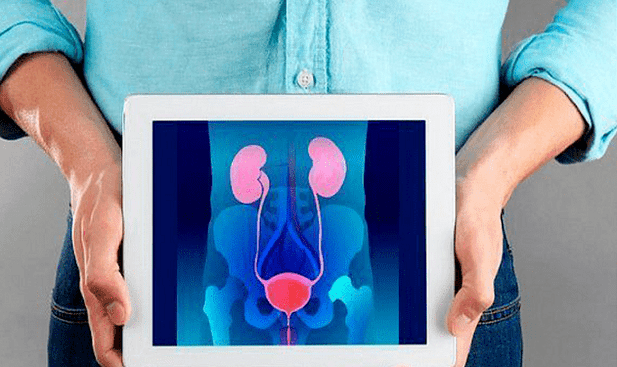Prostatitis is a common urological disease. The frequency of doctor visits for this reason in the United States, for example, is 1% (of all doctor visits).

Prostatitis is a condition caused by an inflammatory lesion of the prostate. This is an exclusively male disease that can start at almost any age older than 20 years.
Forms of prostatitis
There are the following main forms of the disease:
- acute prostatitis;
- chronic bacterial prostatitis;
- bacterial prostatitis;
- chronic prostatitis (chronic pelvic pain syndrome).
Prostatitis is most often caused by exposure to bacteria or viruses. People who are weakened as a result of other diseases (including chronic ones) are especially susceptible to it; Prostatitis can also occur as a result of increased stress, stress, hypothermia, bad habits (alcoholism), or all those factors that reduce the body's defenses. Therefore, prostatitis is divided into infectious and non-infectious.
Symptoms of prostatitis
The main signs of the disease include the following:
- pain in the lower back and abdomen, lower back, perineum, pelvis, groin, scrotum;
- increased urination (including nocturnal urge);
- burning sensation when urinating;
- difficulty urinating, cloudy urine;
- muscle and joint pain;
- weakness, weakness, increased fatigue;
- headache;
- in acute forms of the disease - fever.
The doctor will also notice swelling and tenderness of the prostate.
Prostatitis not only seriously affects the quality of life, but can also cause the development of other diseases and life-threatening conditions.
Important! These symptoms are a reason for emergency medical care. Lack of treatment for acute prostatitis can lead to the development of chronic forms of the disease, as well as cystitis, pyelonephritis, and even sepsis.
Which drugs are considered the most effective in treating prostatitis in men
The list of drugs for prostatitis includes the following groups of drugs:
- antibiotics;
- antipyretic drugs;
- nonsteroidal anti-inflammatory drugs;
- painkillers;
- phytopreparations.
Important! The physician should be responsible for prescribing medications to treat prostatitis. Treatment of prostatitis necessarily involves the use of antibacterial drugs, but due to the special structure of the prostate capillaries, no antibiotic can penetrate its tissues. For effective treatment of prostatitis with this drug, it is necessary to competently choose the type, dosage and duration of the course.
The most effective treatment regimens for prostatitis include herbal medicines, as well as vitamin and mineral complexes that increase the body's resistance:
- tablets containing extracts of medicinal plants such as St. John's wort, Canadian beetle, licorice root, rhizome with Echinacea purpurea root with a total flavonoid content relative to rutin of 5%. The drug has a pronounced anti-inflammatory, bacteriostatic, analgesic effect, normalizes urination, increases the body's resistance.
- Capsules containing alcoholic creeping palm extract, which has an anti-inflammatory effect, relieves swelling, facilitates urination, has antiandrogenic properties selectively in relation to the prostate, without affecting hormonal balance and without reducing potency. The drug is available in packs of 30 and 90 capsules.
- vitamin-mineral preparation containing vitamins most important for men's health (D3, tocopherol, niacin) and zinc, as well as the amino acid L-arginine, which improves blood circulation in the genitals, eleutherosides (to increase immunity) and a complex of plant extracts (yohimbe bark, rootSiberian ginseng, damiana leaves, weed of mountain goats of large flowers, muira puama, suma root, cayenne pepper)
Important! Phytopreparations are an effective adjunct to antibacterial therapy; consult your doctor about their use.
Prostatitis is a serious problem of modern men. It is necessary to carefully monitor the health condition, eat properly, lead an active, but not exhausting lifestyle. If you experience symptoms of prostatitis, seek medical attention; Your doctor will prescribe all the medications you need to effectively treat and support your body.































